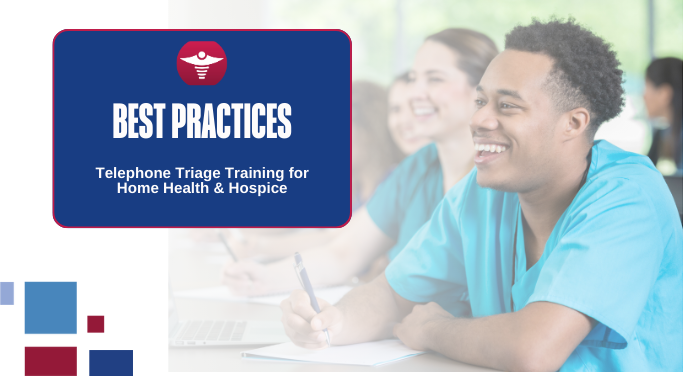Standing up an internal after-hours triage model in your hospice or home health agency requires significant training and resources. After-hours triage (most often evenings/weekends) includes addressing basic calls about scheduling and more complex calls regarding medications, DME, and patient care. Call volume differs significantly between hospice and home health; hospice comprises a larger volume and more complex calls.
Internal after-hours triage models can consist of fully dedicated triage-nurse centers, on-call clinicians answering phones, and a range of call coverage in between. Regardless of how your agency operates your internal after-hours triage, appropriately managing these calls requires skills that differ from bedside nursing. While communication is always essential for patient care, it becomes paramount when caring for patients over the phone. Consider these best practices if your agency manages your after-hours call internally.
See With Your Ears
Active and empathic listening is the name of the game here. Unlike when the patient is in the room, phone-triage clinicians must use the information coming through the receiver to paint a picture of what is happening with the patient. Ask questions and repeat the answers to help the caller feel heard and ensure you address the chief complaint.
Get Right to the Point
The goal should be to have the chief complaint identified within the first minute of the call. The chief complaint is the primary reason the caller is seeking direction. Help the caller get to the point by asking pertinent questions and helping them to remain focused on the issue. There are often multiple factors the person on the other end of the line will want to address. During a phone encounter, the chief complaint will be the most severe or urgent issue identified by the caller.
Be Patient with Your Patients
Remember that experienced clinicians do not equal experienced patients. Your clinicians may have already heard from this patient or their family ten times. The encounter may feel “old hat” to the nurse. However, it is essential to understand that this is all new to the patient. Take the time to educate and hold the caller in mind. Often caretakers are rotating shifts around their caring for their loved ones. Information may not make the complete journey from one caretaker to another. Or possibly the caretaker could not receive all the information the first time it was delivered. Patience and understanding during after-hours calls improve the patient’s experience and eases the burden on loved ones.
Protocols for Internal After-Hours Triage
Your agency has protocols for everything, but phone triage deserves its own set of protocols. Spend time creating the protocols and ensure all your on-call clinicians learn and abide by them. Understanding appropriateness for triage-addressable issues and when a home visit is warranted has ripple effects outside of the encounter itself. If the phone triage clinician can handle an encounter over the phone, it can result in more rapid relief of discomfort and anxiety for the patient or caregiver.
Additionally, with dedicated protocols and clear communication between clinicians, clinicians are afforded a modicum of peace of mind. This can lead to less nurse burnout. A nurse can end their shift knowing their patients are being well cared for, assured that the triage nurse will call them only when necessary. With this assurance in place, they can preserve their energy and provide optimal care the following day.
Dedicated Phone-Triage Training
Many hospice and home health agencies do not have the resources to dedicate to perfecting their phone triage, that’s where IntellaTriage provides value. IntellaTriage employs hospice nurses across the country with a minimum of two years of hospice experience. Therefore, we do not have to train them to be nurses. Instead, we devote hours to onboarding and ongoing training on how to provide triage by phone—resulting in a prepared and empathic licensed nurse on the receiver when patients and families call with questions and concerns. These calls can be as simple as actively listening to the caller and as complex as performing a callback to validate medication effectiveness, refilling a medication in the online pharmacy portal, and walking the caller through first-time comfort kit use.
Learn more about how IntellaTriage can reduce nurse burnout and improve the patient experience. Contact us for an information session today.
Contact Us for a Consultation
Ready to optimize your triage process? Reach out to us today for a consultation tailored to your needs. Let’s elevate your patient care together.
More From The Blog
Patient needs don’t end with the workday and care shouldn’t either. But sustaining continuous care across all hours is far from simple. The real challenge for home-based care organizations is not in recognizing this truth, but rather in designing systems that can support continuous, clinically sound care across all hours and the full episode of [...]
Post-acute care has been shaped these past years by by workforce shortages, evolving regulatory and payment models, and growing expectations around patient experience. Provider organizations now face a critical inflection point. The decisions leaders make in the next 12 months will materially affect quality care, organizational growth, staff experience, and financial stability for years to [...]
Post-acute triage call volumes continue to rise across hospice and home health, driven by higher census, caregiver anxiety, increased acuity at home, and symptom flare-ups. Field nurses are stretched thin, documentation requirements increase regularly, and families expect and deserve immediate clinical guidance, not voicemail. The confluence of these factors mean agencies are paying closer attention [...]









